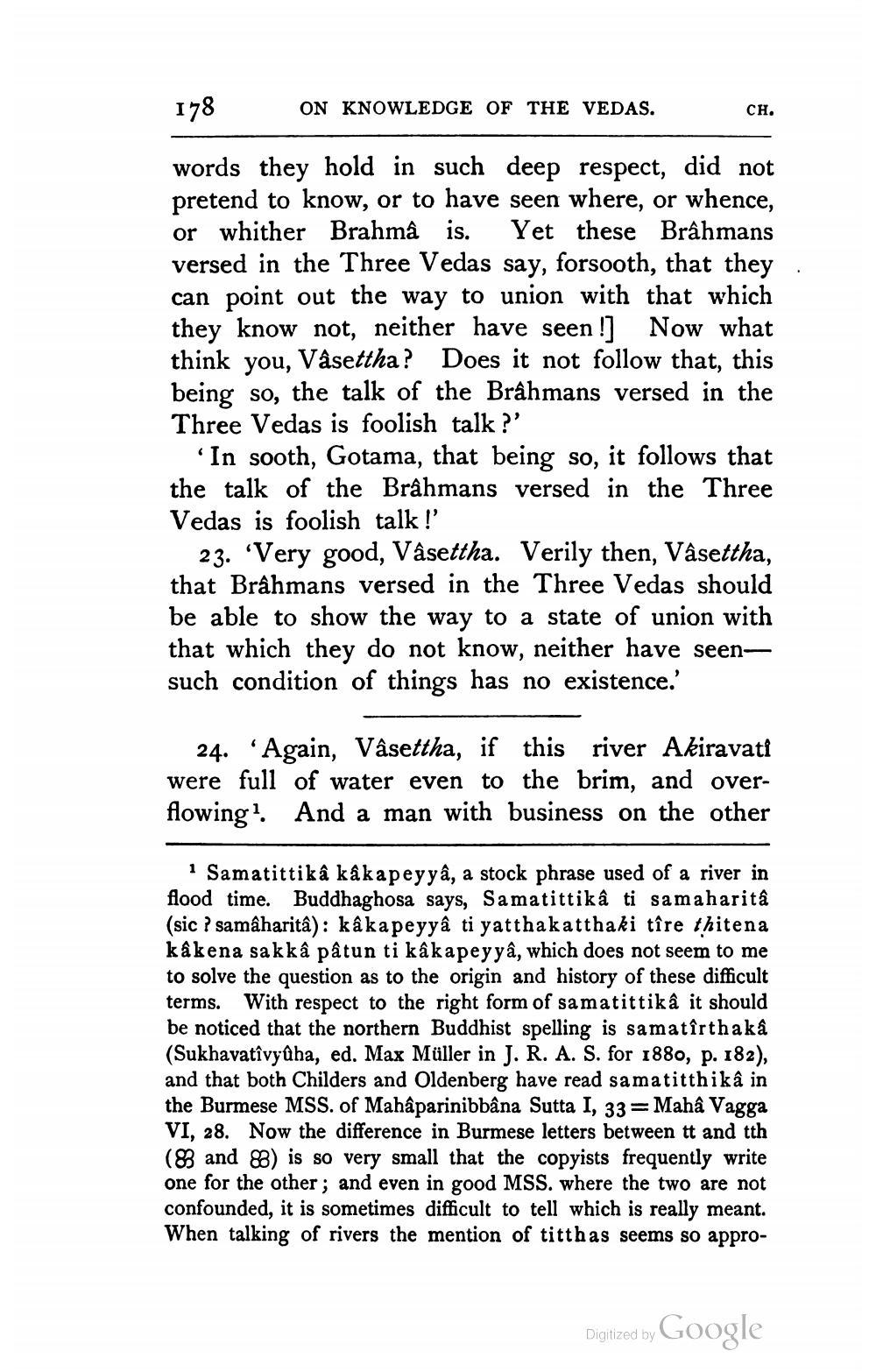________________
178
words they hold in such deep respect, did not pretend to know, or to have seen where, or whence, or whither Brahmâ is. Yet these Brahmans versed in the Three Vedas say, forsooth, that they can point out the way to union with that which they know not, neither have seen!] Now what think you, Vâsettha? Does it not follow that, this being so, the talk of the Brâhmans versed in the Three Vedas is foolish talk?'
ON KNOWLEDGE OF THE VEDAS.
CH.
'In sooth, Gotama, that being so, it follows that the talk of the Brâhmans versed in the Three Vedas is foolish talk!'
23. 'Very good, Vâsettha. Verily then, Vâsettha, that Brahmans versed in the Three Vedas should be able to show the way to a state of union with that which they do not know, neither have seensuch condition of things has no existence.'
24. Again, Vâsettha, if this river Akiravati were full of water even to the brim, and overflowing1. And a man with business on the other
1 Samatittikâ kâkapeyyâ, a stock phrase used of a river in flood time. Buddhaghosa says, Samatittikâ ti samaharitâ (sic? samâharitâ): kâkapeyyâ ti yatthakatthaki tîre thitena kâkena sakkâ pâtun ti kâkapeyyâ, which does not seem to me to solve the question as to the origin and history of these difficult terms. With respect to the right form of samatittikâ it should be noticed that the northern Buddhist spelling is samatîrthakâ (Sukhavatîvyûha, ed. Max Müller in J. R. A. S. for 1880, p. 182), and that both Childers and Oldenberg have read samatitthikâ in the Burmese MSS. of Mahâparinibbâna Sutta I, 33= Maha Vagga VI, 28. Now the difference in Burmese letters between tt and tth (8 and 88) is so very small that the copyists frequently write one for the other; and even in good MSS. where the two are not confounded, it is sometimes difficult to tell which is really meant. When talking of rivers the mention of titthas seems so appro
Digitized by
Google




